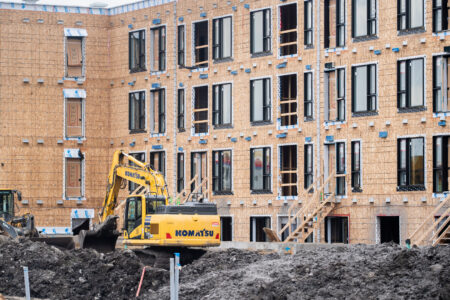
As the order of government closest to the people, municipalities are vital to the health of our democracy. In Canada, however, municipalities don’t always get the respect they deserve.
On the contrary, municipalities are commonly referred to as “creatures of the provinces,” a reference to the fact that municipalities are located under provincial jurisdiction in the Canadian Constitution. Provincial governments have regularly used this idea to justify heavy-handed intervention in municipal affairs. In Ontario, the province recently cut the size of Toronto City Council in half only weeks before a municipal election. In Alberta, the province introduced legislation to repeal and replace the City Charters Fiscal Framework Act, which established different revenue sharing arrangements between the province and Calgary and Edmonton, and recognized the two cities’ unique standing in Alberta’s municipal system.
Despite its widespread acceptance, the notion that municipalities are “creatures of the provinces” is a legal and political fiction – one that needs to be done away with in order to give cities the autonomy and respect they deserve.
The reality is that, while municipalities are part of provincial jurisdiction, they are also an order of government with constitutional significance. That’s because provincial laws that create and define municipalities, such as municipal acts and city charters, are constitutional in ways that other laws – for instance, those concerning education, health care, or other provincial responsibilities – are not.
By creating municipalities, Canadian provinces establish local political institutions, delegate responsibilities, divide decision-making power and create systems of accountability to local citizens. They constitute a new level of government.
Municipalities are in this sense part of provincial constitutions, which are under-discussed in Canadian debates about constitutional reform. Municipal acts and city charters decentralize power and embody the same constitutional values that underpin Canada’s federal structure and democracy. Because these acts are constitutional in nature, the bar for amending them should be higher than for other laws.
As I argue in a new paper for the Institute on Municipal Finance & Governance, creating this higher bar is the most practical and effective way to give cities more autonomy. One promising approach is to use “manner and form” rules, a legal term for procedural restrictions that legislatures place upon themselves for future amendments to particular laws.
For instance, a municipal act or city charter could be amended to include a rule requiring a two-thirds majority vote in the legislature, or a referendum, in order to further amend the legislation. Alternatively, the additional requirement could be as simple as a legislated (and legally binding) commitment to consult a municipality on changes.
The process for altering the manner and form rules themselves could be restricted in a similar way, in order to further protect municipal acts and city charters against unilateral provincial action. In this way, provincial legislatures wouldn’t be able to circumvent the restrictions by unilaterally changing the restrictions themselves.
Some would object that such restrictions violate the principle of parliamentary supremacy – the idea that a current legislature cannot bind future ones. However, many constitutional scholars now argue that reasonable restrictions on the process by which laws are passed (rather than the substance of a policy) are compatible with our parliamentary tradition. Practically speaking, in the municipal context, this means that while a future parliament cannot be bound to, say, particular configurations of ward boundaries or specific provincial-municipal financial arrangements (the substance), it can be bound to a more stringent process than a simple majority vote to make changes to the content of a law (process).
The beauty of manner and form rules is that they can be tailored to particular municipalities or even to a specific section of a city charter or municipal act as appropriate. And they can balance the need for securing municipal autonomy without creating too much rigidity.
Although municipal institutions and powers deserve more security, as settlement patterns change and urbanization progresses, provinces must be able to legislate in the interests of metropolitan areas or provinces as a whole. Unfettered provincial power over municipalities must be curtailed, but municipalities should not be taken outside the scope of provincial authority through an amendment to our country-wide constitution, as has been proposed by Charter City Toronto, a residents’ group calling for a new Toronto city charter that would be subject to a municipal veto of future changes.
Municipalities are an integral part of the Canadian federation and Canada’s constitutional design, and they deserve to be protected as such. It is time to reject the notion that they are mere “creatures of the provinces.” Provincial communities must initiate a discussion of how to secure municipal autonomy in a way that strikes a balance between the legitimate interests of both municipalities and provincial governments. Manner and form rules can provide just such a balance.
Photo: Shutterstock, by Travis Newbigin.
Do you have something to say about the article you just read? Be part of the Policy Options discussion, and send in your own submission. Here is a link on how to do it. | Souhaitez-vous réagir à cet article ? Joignez-vous aux débats d’Options politiques et soumettez-nous votre texte en suivant ces directives.








